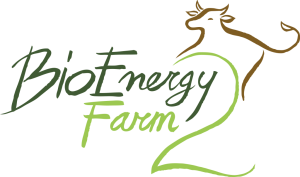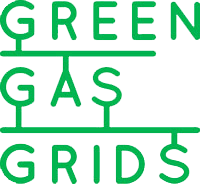The following websites offer information on projects and initiatives that have been co-funded by the European Commission, as well as information on biomethane, clean and alternative propulsion systems, and sustainable urban mobility.

BIOSURF (BIOmethane as SUstainable and Renewable Fuel)
BIOSURF (BIOmethane as SUstainable and Renewable Fuel) was an EU-funded project that ran from 2015 to 2017 under the Horizon 2020 programme for research, technological development and demonstration. The BIOSURF consortium consisted of 11 partners from 7 countries (Austria, Belgium, France, Germany, Hungary, Italy and United Kingdom). Its objective was to increase the production and use of biomethane (from animal waste, other waste materials and sustainable biomass), for grid injection and as transport fuel, by removing non-technical barriers and by paving the way towards a European biomethane market.

Bin 2 Grid
The overall objective of the Bin2Grid concept is to promote segregated collection of food waste as an energy source, conversion to biogas, and its upgrading to biomethane and utilization in associated network of filling stations. Emphasis is given to defining strategies for establishing an efficient network of food and beverage waste collection methods and practices. A whole range of food waste producers will be taken under consideration, i.e. manufacturing entities, catering/food services, retail stores. Biological treatment (anaerobic digestion) is without an alternative for energy utilization of food waste and together with other raw materials creates a synergy for renewable energy production (biogas/biomethane). One of the biggest advantages of such a concept of energy production is having two issues covered at the same time: environmental protection with sustainable management of food waste and the production of renewable energy with its utilization as a biofuel. The existing technologies which are specific for this kind of raw materials will be explored. Keeping in mind that the chemical energy of biogas is fully used when it has been upgraded to biomethane and used as a biofuel, particular attention will be given to advanced biogas to biomethane upgrading techniques for purification and technical requirements for its usage through local filling stations as a biofuel, in public transportation sector in particular (e.g. waste management trucks).

Bio Energy Farm
The BioEnergy Farm project is concerned with increasing the use and production of bioenergy and biofuels in agriculture and disseminates unbiased information about the feasibility of bioenergy and biofuels in agriculture. The goal is to encourage farmers, foresters and land-owners to take bioenergy use and production into consideration. To achieve this goal, it offers free access to reliable information on bioenergy and biofuels, calculation tools necessary to evaluate profitability of bioenergy and biofuels for each individual case as well as expert advice and support.

Biorefine Cluster Europe
The Biorefine Cluster Europe interconnects projects and people within the domain of biobased resource recovery, striving to contribute to a more sustainable resource management in the framework of circular economy systems. The competence focus lies within the biorefinery sector: the refinement of chemicals, materials, energy and products from biobased waste streams.

Gas for Climate: a path to 2050
The Gas for Climate: a path to 2050 is a group of seven leading European gas transport companies (Enagás, Fluxys, Gasunie, GRTgaz, Open Grid Europe, Snam and Teréga) and two renewable gas industry associations (EBA and CIB). The initiative is committed to achieve net zero greenhouse gas emissions in the EU by 2050. Gas for Climate: a path to 2050 advocates an affordable solution in the transition to a sustainable energy system.

Green Gas Grids
GreenGasGrids is a project aimed at boosting the biomethane market in both forerunner and starter countries in Europe and to establish a cross-border market. The project brings public and private biomethane stakeholders together in order to reduce the biggest barriers and to jointly set up strategies for the promotion of biomethane injection and utilisation for heat, electricity and vehicle fuel. It focuses on the most pressing issues with regard to biomethane: sustainability, technical standards, legislation and trade.

The European Biofuels Technology Platform
The European Biofuels Technology Platform was established in 2006, and brings together the knowledge and expertise of stakeholders from industry, biomass resource providers, research & technology development organisations and NGOs in a public-private partnership. The European Biofuels Technology Platform (EBTP) is focused on the development of cost-competitive world-class biofuel value chains and the creation of a healthy biofuel industry, and to accelerate the sustainable deployment of biofuels in the European Union, through a process of guidance, prioritisation and promotion of research, technology development and demonstration.

ISABEL Project
The Horizon 2020 ISABEL project (acronym for “Triggering Sustainable Biogas Energy Communities through Social Innovation”) is about promoting, supporting and developing community biogas in Europe. The project is set on providing all the framework conditions for biogas communities to shape, develop and thrive and works on all angles in order to pave the way for the transition from traditional supply chains to community ownership and to take full advantage of the ample societal benefits of local community-driven biogas systems, fuelled and inspired by social innovation principles.

URBAN BIOGAS
URBAN BIOGAS aims to promote the use of organic urban waste for biogas production in 5 European cities, in order to inject biomethane into the natural gas grid and to use it in transport.
